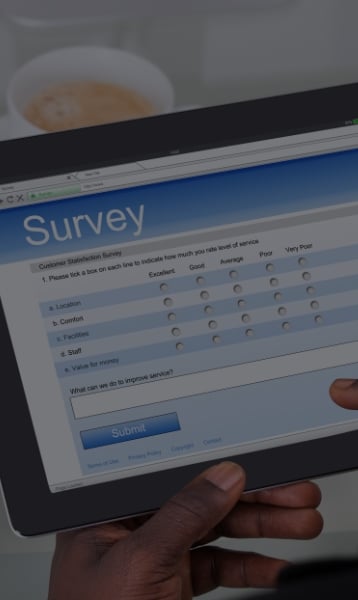The benchmarking portal gives you access to all reports available for STD, LTD, FML & WC.
Employer Survey Finds Improved Health and Affordable Care are Priorities and Lagging Confidence that this is Achieved through Benefits

Marshall Riddle
Employer Survey Finds Improved Health and Affordable Care are Priorities and Lagging Confidence that this is Achieved through Benefits
WASHINGTON and OAKLAND, CA – March 10, 2020 – US employers can have significant impact in shaping the care, health and wellbeing of their workers and family members given that almost 60% of working-age Americans are covered by employer-based health insurance. According to a recent survey of 200 benefits managers conducted by the Integrated Benefits Institute in partnership with the National Alliance of Healthcare Purchaser Coalitions (National Alliance), some employers are already playing that role in the design of their medical, pharmacy, disability, wellbeing, absence and other health benefits.
The survey, funded by the Patient-Centered Outcomes Research Institute (PCORI), found that when making decisions about health benefits, the needs and interests of employees were considered nearly as—or more important than—policy goals such as attracting and retaining talent and reducing absence and disability lost work time. However, the survey also shows that employers are not confident that their health-related programs are achieving their patient-centered goals. A research report on the findings with implications for employers can be accessed here: https://www.ibiweb.org/how-employers-can-shape-patient-centered-health-outcomes.
“Designing benefits that reflect employees’ perspectives, preferences and values can help ensure that employees make use of their care options,” said Thomas Parry, PhD, IBI President. “While employee-centered goals are on the minds of employers, there is opportunity for improvement by better linking to the design and delivery of their health and benefit programs.”
Findings include:
- Helping employees improve and sustain good health was a very important health benefits policy goal for 91% of respondents.
- Ensuring health benefits are affordable to employees, effectively communicating benefits to employers, and managing healthcare and prescription drug expenses were each identified as very important by 90% of those surveyed.
- Policy goals such as improving value on investment of healthcare spending and facilitating recruitment/retention of talent were reflected as very important less often – by 84% and 80% of the respondents respectively.
- Employers seem to be putting employees’ healthcare needs and interests at the forefront, but only half or less reported being very confident that they were achieving the desired outcomes. When asked about contributing to employees’ ability to function well on the job, 51% indicated that they were “very confident” that their medical benefits achieved this, while only 27% indicated the same for their wellness/wellbeing programs.
- When asked if their programs helped employees improve and sustain good health, only 40% were “very confident” that their medical benefits and 30% of their wellness/wellbeing programs achieved this goal.
- Respondents were asked to rate their reliance on experts or professionals who provide input when making decisions that affect their company's health and related benefits. Greatest reliance is on experts within the company (70%), consultants (50%) and pharmacy benefit managers (44%).
“Employers are consistent in their desires to achieve patient-centered outcomes but inconsistent in their confidence that they are doing so,” said Michael Thompson, National Alliance President and CEO. “There is a great opportunity to develop and use research insights on what works to better guide employer benefits and health strategies moving forward.”
March 17 Webinar
To share additional insights from the survey and feature a discussion of employers on the value strategy of incorporating employees needs and interests around their benefits programs, IBI and National Alliance are hosting a complimentary webinar on Tuesday, March 17 from 2:00-3:00 p.m. Eastern. To learn more and register: https://www.ibiweb.org/wp-content/uploads/2020/02/3.17-Webinar-Flyer.pdf. Speakers on the webinar include Dr. Mohannad Kusti, United States Steel Corporation; Lisa Evans, Southwire; Larry Becker, formerly of Xerox; Dr. Bruce Sherman, National Alliance; and Dr. Thomas Parry, IBI.
About the Survey
The online survey of 200 employers was conducted from May to July 2019 to understand whether and how employee needs and goals are factored in when it comes to designing and implementing benefit programs in their companies. Eighty-five percent of respondents indicated they work for a self-insured organization, 42% have more than 10,000 employees and the top three industries represented were manufacturing (26%), service (17%) and healthcare (13%).
About Integrated Benefits Institute
The Integrated Benefit Institute’s independent research, industry-leading tools and data resources help companies link health-related programs to the outcomes that maximize the contributions of people to productivity and business performance. Founded in 1995, IBI is a national nonprofit research organization and business association serving 1,200 employer and supplier members and their 22 million employees. For additional information, please visit ibiweb.org and follow us on Twitter and LinkedIn.
About National Alliance
The National Alliance of Healthcare Purchaser Coalitions is the only nonprofit, purchaser-led organization with a national and regional structure dedicated to driving health and healthcare value across the country. Our members represent more than 12,000 employers/purchasers and 45 million Americans spending over $300 billion annually on healthcare. To learn more, visit nationalalliancehealth.org, connect with us on Twitter and LinkedIn.
# # #
- December 2024 (1)
- November 2024 (1)
- July 2024 (1)
- June 2024 (1)
- March 2024 (1)
- February 2024 (1)
- January 2024 (1)
- December 2023 (1)
- November 2023 (1)
- August 2023 (1)
- July 2023 (1)
- May 2023 (2)
- February 2023 (2)
- January 2023 (2)
- November 2022 (1)
- October 2022 (1)
- September 2022 (1)
- March 2022 (1)
- February 2022 (1)
- January 2022 (1)
- December 2021 (1)
- September 2021 (1)
- April 2021 (2)
- December 2020 (1)
- October 2020 (1)
- September 2020 (2)
- August 2020 (2)
- July 2020 (1)
- April 2020 (1)
- March 2020 (1)
- November 2019 (1)
- September 2019 (1)
- July 2019 (1)
- June 2019 (2)
- May 2019 (1)
- April 2019 (1)
- February 2019 (1)
- November 2018 (1)
- September 2018 (1)
- August 2018 (1)
- June 2018 (1)
- March 2018 (1)
- March 2017 (1)
- February 2017 (2)
- Absence (1)
- Absence Management (1)
- analytics (1)
- Behavioral Health (1)
- Benchmarking (2)
- Benchmarking Analytics (1)
- Benefit Design (2)
- Benefits + Plan Design (2)
- Blog (1)
- Business Performance (1)
- CDHP (1)
- CFO Survey (2)
- COVID-19 (6)
- Depression (3)
- director (1)
- Disability Leave (7)
- Extreme Weather (2)
- Family + Parental Leave (3)
- FMLA (2)
- Health + Productivity Management (3)
- Healthcare (1)
- Healthcare Costs (2)
- lost time (1)
- Manage Absence (2)
- Medication Adherence (1)
- Mental + Emotional Health (4)
- Mental Health (2)
- new hire (1)
- Parental / Family Leave (1)
- Patient-Centered (1)
- Press Releases (50)
- Preventive Care (1)
- Productivity (3)
- Research (2)
- Research Report (1)
- Return to Work (1)
- Sick Leave (2)
- Telehealth (1)
- Telemedicine (1)
- Worker's Compensation (1)
- Workplace Health Programs (1)




























